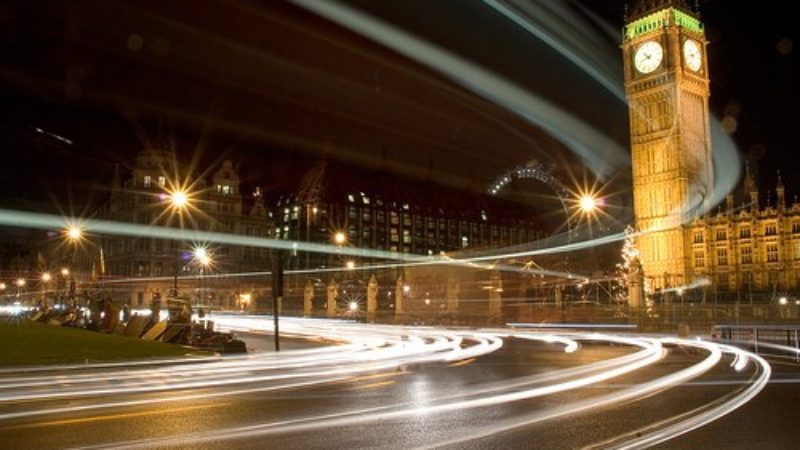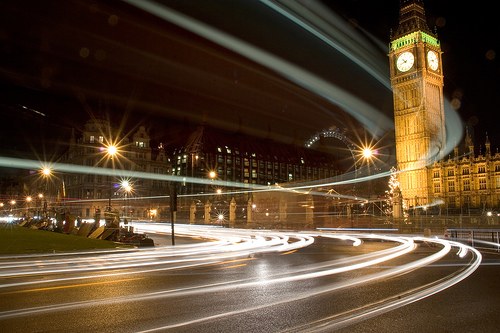

So we have reached the “end of the beginning” of the Leadership election, with the close of nominations for Leader, and four runners making it through the starting gate, leaving behind Mary Creagh, Chuka Umunna and Dan Jarvis, who all rules themselves out before the deadline.
What have we learned?
1) The Hard Left retains a potent activist machine in the wider Labour Party, able to generate immense online and local noise in favour of Jeremy Corbyn receiving the required 35 nominations. But when it comes to the PLP it is dependent on patronising “lent” nominations – people who will never vote for Jeremy but, like me, think it is democratic to allow him to go forward to the OMOV ballot. The hype around the parliamentary selection process when Unite and the rightwing media both talked up the influence of the Unite Political Strategy in winning selections seems to have resulted in a crop of MPs who are not notably more leftwing than any previous PLP.
2) Elements of the right of the Party are good at overreacting to Corbyn and the Hard Left. There has been a lot of screeching about how his presence on the ballot will make Labour look unreconstructed. Either he will poll as badly as Diane Abbott did in 2010 in which case putting him on the ballot has just exposed the lack of support in the wider party for his brand of politics. Or he will do better than that in which case it would be daft to think you can block where the members want to go by narrowing the choice.
3) The Blairite wing of the party are also good at making a lot of noise. Liz Kendall has done very well to get herself into the final field from a standing start where she wasn’t a high profile figure.
4) Neither the Hard Left nor the Blairites are making much show of adapting their thinking or policies to the General Election result or indeed any recent political events. Kendall’s policy pitch is pretty much picking up where Blair left off in 2007, heavy on a public service reform agenda with little resonance for the electorate and even less voter appeal inside the party with people with a vote in this leadership election. Oddly she doesn’t seem to have moved towards the electorate on immigration where most voters thought Blair, let alone Ed Miliband, was outrageously leftwing. It’s triangulation, but mainly on unpopular policies. And with a stalwart refusal to triangulate or compromise enough with the party membership to get the chance to run in the General Election. If Kendall wants to pick up where we left off in 2007, Corbyn shows no sign of having developed any new policies since 1983, even referring in one article to the need for an “Alternative Economic Strategy” (a key Bennite demand in the 1970s and 1980s). Such consistency is admirable in some ways but hardly indicative of the open-mindedness and forward thinking we are going to need to deal with the crisis the party finds itself in.
5) Initially there were too many candidates fishing in the same pond at the Blairite end of the party, and all of them were not quite heavy-hitters enough – the rhetoric about “skipping a generation” is all very well but in reality it is code for “we lost the generation that should be running right now”. A Jim Murphy candidacy might have had far more cut-through than the names offered, including Kendall. I would certainly have been campaigning for him. And why is Kendall running rather than ideologically similar but stronger candidates like Stephen Twigg or Caroline Flint or even Tessa Jowell (the latter two having opted to run for more junior positions)?
6) It also looks like there are too many similar candidates running for Deputy Leader. Why are Caroline Flint, Ben Bradshaw and Stella Creasy all running? Combined their nominations would have overtaken Tom Watson’s, as it is, two of them are struggling to get on the ballot.
7) Generally Kendall is in a weaker position than David Miliband was in 2010 – and he lost – with only half the number of PLP nominations he got. But that’s to be expected as he was the immediate ex-Foreign Secretary and widely seen as the heir-apparent. This doesn’t necessarily mean Blairism is weaker as 13 of David’s 2010 supporters are backing Cooper, 7 Burnham, 6 Corbyn and 19 didn’t nominate. It’s just a lot less obvious than in 2010 what someone identifying with that tradition should do.
8) There does seem to be a generational shift in the PLP towards the centre of the party. Only two MPs elected for the first time this May, albeit the very capable Wes Streeting and Peter Kyle, have nominated Kendall.
9) Whatever Andy Burnham did to annoy the Hard Left, they seem really annoyed. One minute they looked likely to provide the organisational muscle for his campaign and the next minute they had collectively walked off to back Corbyn. Imagine if Andy had the extra 15 or so nominations that Corbyn took that would have been his. Or if the online noise for Corbyn was for Burnham, or if he was going to get the CLP supporting nominations the Hard Left can deliver and the organisational machine it deploys in other OMOV elections such as when it beats me for the NEC! Burnham remains the front-runner but has
suffered a big dent to his momentum. The shoo-in that looked likely when credible moderates like Michael Dugher and Rachel Reeves signed up to his campaign no longer seems to be the scenario. His long-term post-2010 strategy of making himself acceptable to the left as a former Blairite was correct, but he now looks like he overdid it, acquiring baggage from association with them that will be used against him if he is Leader, but not getting the organisational support he had hoped for.
10) Burnham’s support is very geographically lop-sided. 50 of his 68 nominations are from north of Stoke-on-Trent, and a further 11 from Wales. This may indicate a weakness at OMOV stage. Although the North West is the second highest membership region it is far smaller than London which accounts for 20% of national membership and will have a high turnout due to Get Out the Vote activity for the simultaneous Mayoral selection.
11) With Burnham losing a chunk of his support to Corbyn, and Kendall not reaching out beyond her core constituency of the right flank of David Miliband’s old support, the only candidate demonstrating momentum during this nomination stage has been Yvette Cooper. She has ended up with nearly as many nominations as Burnham (59) and made a series of policy announcements which have had rather more weight to them than her opponents’ and have struck a happy balance in terms of being external vote-winners without being inside-the-Labour-Party vote losers.
12) So far only 2,500 people have been signed-up as affiliated supporters from the trade unions and socialist societies. Whatever the political impact on the result this can’t be described as an advance for democracy. Unless the unions turn this round and convert many more of their members into affiliated supporters it looks like the vast majority of the 211,234 affiliated members who voted in 2010 (less those who were also full party members) will be disenfranchised. This is not good news for Labour or its links through the unions with ordinary working people, as our full members are inevitably more middle class having paid a relatively large amount to join.
I’m of the view that whatever the noise – and indeed useful contribution in terms of a broad and exhaustive debate – from the campaigns at either extreme of the party, the balance of where Labour’s members sit politically and the transferable voting system mean that the eventual contest will be a two-horse race between Andy and Yvette. Neither will want to stick with the formula Ed Miliband offered in 2015 as both of them want to be Prime Minister not a one term opposition leader. They will both seek to move the party towards the political centre. My sense is that Yvette’s instincts and Andy’s strategic positioning towards the left since 2010 mean she will be positioned to make a bolder and more decisive move towards election-winning territory than he will. But as with the 2010 leadership election I am expecting a very close result. The preparedness of supporters of Kendall in particular to transfer in a disciplined way to Cooper is going to decide the outcome. I would also expect a chunk of Corbyn’s support to find Yvette more attractive than Andy.
The key question is whether Liz Kendall’s supporters listen to these
wise words from Jim Murphy’s speech yesterday:
“Bluntly, we need a reckoning with our past. And let me start with one of my own. It is time for some arguments to be out beyond use. Principally, the one between Blairites and Brownites.
And let’s be frank what a self-indulgent and self-destructive struggle that was.
In the last two months of the election I have spoken more to Ed Balls than I did in the last two decades. And I realised how wrong I had been.
I had no closer support from any colleague during the election than Ed Balls. How wrong to wait until so late in the days to work together properly.
One of the exciting things about this leadership contest is that we can genuinely move beyond those old divisions borne of the mid 1990’s.”
If the moderate wing of the Labour Party can unite, in the sense of transferring votes in a logical way, it can win this election and vastly increase Labour’s chances of returning to power. If it doesn’t, it has only itself to blame.



More from LabourList
Exclusive: Poll shows Starmer more trusted than PM on Middle East crisis
Revealed: Poll shows 1 in 4 Tory voters says Rayner faces ‘smear campaign’
‘Ignore the noise – the soft left is alive and well in Open Labour and beyond’